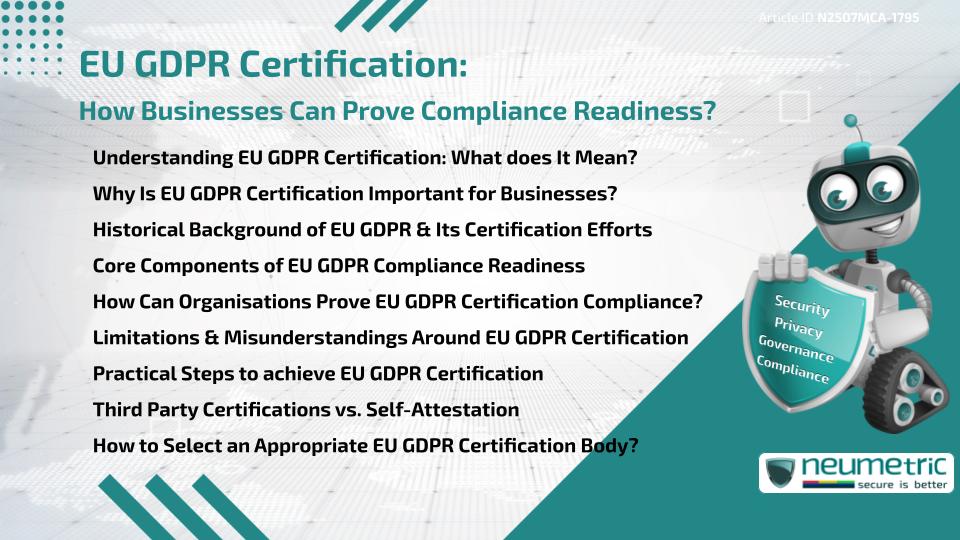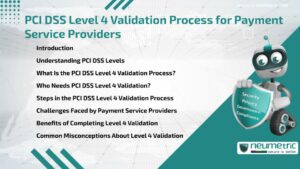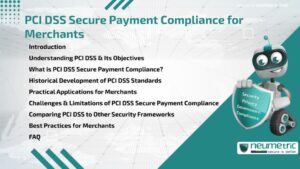Table of Contents
ToggleIntroduction
As Data Privacy regulations gain global traction, Organisations doing business in or with the European Union must prove their commitment to protecting Personal Data. The EU GDPR Certification offers a way for businesses to validate their readiness & Compliance with the General Data Protection Regulation [GDPR], showing regulators & customers that they take Privacy seriously. But what exactly is EU GDPR Certification & how can businesses achieve it?
Understanding EU GDPR Certification: What does It Mean?
Unlike many other regulatory frameworks, the GDPR does not mandate a single certifying body or one-size-fits-all process. Instead, EU GDPR Certification refers to formal recognition by an accredited body that an Organisation’s data processing activities comply with GDPR principles. Certification mechanisms under GDPR are voluntary but offer tangible benefits for demonstrating accountability.
According to Article 42 of the GDPR, accredited certification bodies or data protection authorities have the authority to issue certifications. These Certifications are based on approved criteria published by the authorities & monitored periodically.
Why Is EU GDPR Certification Important for Businesses?
Obtaining EU GDPR Certification signals that a company meets the highest standards for Privacy & Data Protection which helps in building trust with customers, business partners & regulators. For companies processing sensitive or high-Risk Personal Data, certification also helps demonstrate proactive Risk Management.
Moreover, being certified can streamline regulatory audits, reduce legal uncertainties & improve market competitiveness, especially in data-sensitive industries like Healthcare, Finance or cloud services.
Historical Background of EU GDPR & Its Certification Efforts
The concept of Privacy certification was introduced with the GDPR in 2018 to foster Compliance & transparency. However, widespread adoption took time due to the absence of approved schemes & certifying bodies. Over the years, countries like Germany & France started piloting certification schemes such as EuroPriSe & CNIL’s Data Protection labels.
In 2021, the European Data Protection Board [EDPB] issued guidelines on how certification mechanisms should operate. These developments laid the groundwork for a clearer structure, helping businesses pursue certification with greater clarity & purpose.
Core Components of EU GDPR Compliance Readiness
To be eligible for EU GDPR Certification, businesses must demonstrate adherence to several key principles:
- Lawfulness & fairness: Data must be collected with proper consent or legal basis.
- Purpose limitation: Personal data must be handled strictly for specific & lawful purposes that have been clearly defined in advance.
- Data minimization: Only necessary data should be processed.
- Accuracy & storage limitation: Data must be accurate & not kept longer than necessary.
- Integrity & confidentiality: Security Measures must protect against unauthorized access.
These requirements apply to both data controllers & processors & must be supported by technical & organizational safeguards.
How Can Organisations Prove EU GDPR Certification Compliance?
Businesses can demonstrate Compliance readiness in several ways:
- Conduct routine Data Protection Impact Assessments [DPIAs] when handling high-risk data processing activities.
- Maintain Records of Processing Activities [RoPA] as required by Article 30 of the General Data Protection Regulation.
- Appoint a qualified Data Protection Officer [DPO], where required.
- Implement Privacy-by-design controls & ensure secure data handling.
- Train Employees on GDPR principles & Best Practices.
All of these steps contribute to building a strong foundation for EU GDPR Certification, especially when seeking formal review by an accredited body.
Limitations & Misunderstandings Around EU GDPR Certification
Despite its benefits, EU GDPR Certification has certain limitations. First, certification does not automatically mean full Compliance — it only reflects the evaluation of specific data processing operations. Moreover, Certifications can be revoked if standards are not upheld.
Another common misunderstanding is that certification exempts Organisations from liability. That is not true. GDPR enforcement, including fines, still applies if violations are found — even if the Organisation is certified.
Practical Steps to achieve EU GDPR Certification
Here is a practical roadmap for pursuing EU GDPR Certification:
- Conduct a Gap Analysis to identify Compliance shortfalls.
- Document your Privacy management Framework clearly.
- Engage with a credible Third Party certifying body recognized by the national supervisory authority.
- Participate in audits & correct Non-Conformities.
- Monitor changes in GDPR interpretations & update controls accordingly.
These actions not only enhance your certification readiness but also foster an ongoing culture of Compliance.
Third Party Certifications vs. Self-Attestation
While some businesses may conduct internal audits or self-assessments, these do not carry the same weight as formal Certifications. Third Party EU GDPR Certification provides objective validation & is preferred in procurement or partnership scenarios. This is especially valuable in B2B markets where proof of Compliance is a prerequisite.
How to Select an Appropriate EU GDPR Certification Body?
Not all certifiers are equal. To choose the right certification body:
- Check whether they are accredited by the national supervisory authority or not.
- Evaluate their track record & sector-specific expertise.
- Review the certification scope & criteria they use.
- Understand their Audit process & associated timelines.
You can check the list of accredited bodies on the European Commission’s official portal for guidance.
Takeaways
- EU GDPR Certification is a voluntary but valuable way for businesses to validate their Privacy Compliance.
- Certification supports trust-building, Risk reduction & improved regulatory alignment.
- Businesses must take practical steps, such as maintaining RoPA & conducting DPIAs, to prepare for certification.
- Third Party certification is more credible than self-attestation.
- Selecting a certification body that is experienced & accredited is critical to the process.
FAQ
What is EU GDPR Certification?
EU GDPR Certification is a formal recognition by an accredited body that a business’s data practices align with the requirements of the General Data Protection Regulation.
Is EU GDPR Certification mandatory?
No, certification is voluntary under GDPR. However, it helps Organisations demonstrate accountability & gain Customer Trust.
How long does EU GDPR Certification remain valid?
The certification is usually valid for a defined period, often three (3) years, but requires ongoing Compliance monitoring & audits.
Can Small Businesses apply for EU GDPR Certification?
Yes, businesses of all sizes can pursue certification if they process Personal Data & meet the applicable requirements.
What are the costs involved in EU GDPR Certification?
Costs vary depending on the scope of certification, the certification body & the level of complexity in data processing.
Does certification cover the entire Organisation?
Not always. Certification often applies to specific data processing activities or systems, not necessarily the whole Organisation.
Who regulates EU GDPR Certification Bodies?
National supervisory authorities oversee & approve Certification Bodies within their jurisdictions based on EDPB guidelines.
Can a company lose its EU GDPR Certification?
Yes, if the Organisation fails to maintain Compliance or does not resolve identified Non-Conformities, certification may be suspended or withdrawn.
How do I know if a company is EU GDPR Certified?
Check with the certification body or look for verification on the official accreditation register or the company’s Privacy documentation.
Need help?
Neumetric provides organisations the necessary help to achieve their Cybersecurity, Compliance, Governance, Privacy, Certifications & Pentesting goals.
Organisations & Businesses, specifically those which provide SaaS & AI Solutions, usually need a Cybersecurity Partner for meeting & maintaining the ongoing Security & Privacy needs & requirements of their Clients & Customers.
SOC 2, ISO 27001, ISO 42001, NIST, HIPAA, HECVAT, EU GDPR are some of the Frameworks that are served by Fusion – a centralised, automated, AI-enabled SaaS Solution created & managed by Neumetric.
Reach out to us!





